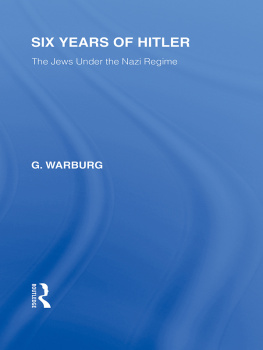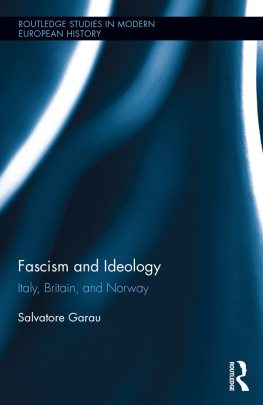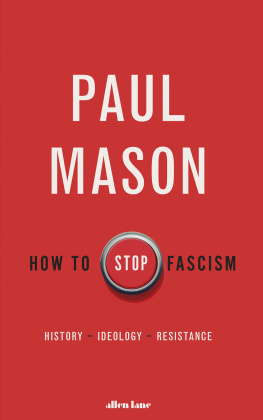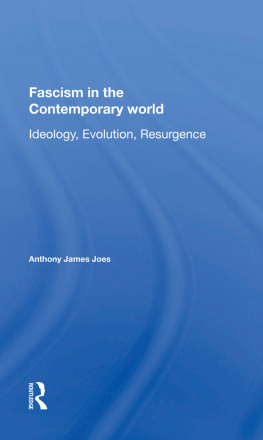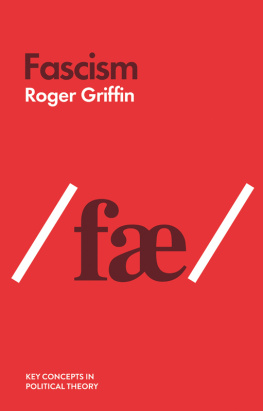Horn - European socialists respond to fascism: ideology, activism, and contingency in the 1930s
Here you can read online Horn - European socialists respond to fascism: ideology, activism, and contingency in the 1930s full text of the book (entire story) in english for free. Download pdf and epub, get meaning, cover and reviews about this ebook. City: New York;Europe, year: 1996, publisher: Oxford University Press, genre: Politics. Description of the work, (preface) as well as reviews are available. Best literature library LitArk.com created for fans of good reading and offers a wide selection of genres:
Romance novel
Science fiction
Adventure
Detective
Science
History
Home and family
Prose
Art
Politics
Computer
Non-fiction
Religion
Business
Children
Humor
Choose a favorite category and find really read worthwhile books. Enjoy immersion in the world of imagination, feel the emotions of the characters or learn something new for yourself, make an fascinating discovery.

- Book:European socialists respond to fascism: ideology, activism, and contingency in the 1930s
- Author:
- Publisher:Oxford University Press
- Genre:
- Year:1996
- City:New York;Europe
- Rating:5 / 5
- Favourites:Add to favourites
- Your mark:
- 100
- 1
- 2
- 3
- 4
- 5
European socialists respond to fascism: ideology, activism, and contingency in the 1930s: summary, description and annotation
We offer to read an annotation, description, summary or preface (depends on what the author of the book "European socialists respond to fascism: ideology, activism, and contingency in the 1930s" wrote himself). If you haven't found the necessary information about the book — write in the comments, we will try to find it.
Horn: author's other books
Who wrote European socialists respond to fascism: ideology, activism, and contingency in the 1930s? Find out the surname, the name of the author of the book and a list of all author's works by series.
European socialists respond to fascism: ideology, activism, and contingency in the 1930s — read online for free the complete book (whole text) full work
Below is the text of the book, divided by pages. System saving the place of the last page read, allows you to conveniently read the book "European socialists respond to fascism: ideology, activism, and contingency in the 1930s" online for free, without having to search again every time where you left off. Put a bookmark, and you can go to the page where you finished reading at any time.
Font size:
Interval:
Bookmark:
European Socialists Respond to Fascism
Ideology, Activism and Contingency in the 1930s
GERD-RAINER HORN

Oxford University Press
Oxford New York
Athens Auckland Bangkok Bogota Bombay Buenos Aires
Calcutta Cape Town Dar es Salaam Dehli Florence Hong Kong
Istanbul Karachi Kuala Lumpur Madras Madrid Melbourne
Mexico City Nairobi Paris Singapore Taipei Tokyo Toronto
and associated companies in
Berlin Ibadan
Copyright 1996 by Oxford University Press, Inc.
Published by Oxford University Press, Inc.
198 Madison Avenue, New York, New York 10016
Oxford is a registered trademark of Oxford University Press
All rights reserved. No part of this publication maybe reproduced,
stored in a retrieval system, or transmitted, in any form or by any means,
electronic, mechanical, photocopying, recording, or otherwise,
without the prior permission of Oxford University Press.
I want to thank the Fondation Jules Humbert-Droz for giving me copyright permission for an article
I wrote some years ago, which was an early version of . The article appeared as Efforts at United Fronts:
The Relations Between the Communist International and the Labour and Socialist International, 1932-1935
in Centenaire Jules Humbert-Droz, Colloque sur lInternationale communiste (La Chaux-de-Fonds: Fondation Jules
Humbert-Droz, 1992).
Library of Congress Cataloging-in-Publication Data
Horn, Gerd-Rainer.
European socialists respond to fascism : ideology, activism,
and contingency in the 1930s / Gerd-Rainer Horn.
p. cm.
Includes index.
ISBN 0-19-509374-7
1. SocialismEuropeHistory20th century. 2. National socialism.
3. EuropePolitics and government19181945.
I. Title.
HX23B.H67 1996
335.0094dc20 95-46426
9 8 7 6 5 4 3 2 1
Printed in the United States of America
on acid-free paper
This study concerns a crucial transnational moment of opportunity and crisis in the 1930s. It presents an analysis and description of one of those rare incidents in modern European history when seemingly Utopian visions suddenly appeared realizable. By sheer coincidence, the archival research for this study paralleled the life span of yet another transnational event in twentieth-century history. I landed in Dsseldorf roughly two weeks after the Hungarian government opened its Austrian border to would-be emigrants from Eastern Europe to the West. I left Amsterdam for my return trip to Detroit two weeks after the 3 October 1990 elections that sealed the unification of former East and West Germany.
In those turbulent thirteen months between September 1989 and October 1990 I visited nineteen archives in six countries (seven if one takes into account that in April 1990 the German Democratic Republic was nominally still an independent state). Rather than listing each archive separately, I would like to express my gratitude collectively for permission to examine their holdings. A significant proportion of my research year was indeed spent in these archives. My memories of 1989-90 will forever include the majestic view of Amsterdams old harbor from the reading room of the IISG; the meandering walks through the old center of Salamanca while waiting for new dossiers to arrive in the AHNS; the wintry morning walks from the Leopoldstadt through the Krntnerstrasse to the VGA in the old SP party headquarters on the Rechte Wienzeile; and much else.
Archives merely furnish raw materials; it takes people to examine their holdings and extract meaning from them. Countless individuals have helped me make sense of this project; I can mention only some of them here. This work is based upon my dissertation (University of Michigan, 1992) and I want to thank the members of my dissertation committeeKathleen Canning, Geoff Eley, Janet Hart, Ronald Sunyfor putting up with the demands of this transnational study and for their continuing encouragement and help. In addition, Denise De Weerdt, Andrew Durgan, Santos Julia Diaz, Fritz Keller, A. H. van Peski, Michael Schneider, Adrian Shubert, Carl Strikwerda and Reiner Tosstorff have given me substantive feedback on one or several draft chapters or have aided me in other crucial ways. Two unorthodox BelgiansJan de Man and Leo Moulinwere particularly enthusiastic in supporting my undertaking by providing extensive personal recollections. Eric Weitz was one of the select few who not only managed to work his way through an early draft of the entire work but also found the time to give me valuable feedback. Early on I linked up with Gilles Vergnon, who was then working on a closely related topic. Although we never met, his expert advice and interest in my topic served as a constant inspiration. Few people know the world of interwar European social democracy as intimately as the polyglot Helmut Gruber. I am very fortunate to have met him. Our initial eveninglong discussion in a Chicago hotel in March 1992 marked the beginning of a fruitful relationship. Without his assistance, this study would have turned out quite differently. Very few historians would have agreed to oversee so vast a project as this one. Only someone with a breadth of vision and the theoretical perspicacity to weigh the advantages and limitations of my work could have guided such an undertaking. Geoff Eley is one of only a handful of scholars in the English-speaking world who possesses such a Continental outlook. I thank him for his ongoing support. The ideas contained in this book are the product of almost two decades of involvement in political activism and historical analysis. During most of this period, Mary McGuire discussed and shared many of my ideas. Although we have gone our separate ways, this book reflects our long-standing intellectual rapport.
Financial aid has played as important a role in the publication of this book as has intellectual support. I therefore want to thank the Friedrich Ebert Stiftung, the Mellon Foundation, the University of Michigans Rackham Graduate School and the Department of History for granting me sufficient resources to complete the archival leg of this journey and to mold these materials into my dissertation. Since I never stayed in one location for more than ten weeks, the logistics of housing turned out to be a continual and pivotal (financial) concern during my year abroad. I want to express my gratitude to my parents, Christel and Erwin Horn, Paul van Kuijeren, Claudia Lego, Juan Felix Larrea and Marie-Dominique Cavaille. Without their generous offer of living space and friendship, I could never have succeeded in carrying out my tasks. Last but not least, the office of the dean of Liberal Arts at Western Oregon State College provided me with a summer fellowship and release time to complete my final manuscript.
Finally, a note on the larger meaning of this book. Its origin dates back to my keen interest and involvement in the politics of the Left in the 1970s, when the crises and the questions surrounding the interwar period often served as inspiration for the hoped-for answers in this much later critical moment. That the answers provided in the 1930s could not serve as guidelines in the final quarter of the twentieth century soon became clear to most participant observers. But what this author refuses to discard is the belief in the possibility of a qualitatively different world. Perhaps this is the real reason for my emphasis on the notion of contingency with which this study concludes. At the very beginning of the 1930s, few individuals would have predicted the stunning developments affecting the politics of the Left between 1933 and 1936. Writing these lines at another inauspicious moment for progressive culture and politics, who is to say that another set of innovations may not be waiting in the wings?
Next pageFont size:
Interval:
Bookmark:
Similar books «European socialists respond to fascism: ideology, activism, and contingency in the 1930s»
Look at similar books to European socialists respond to fascism: ideology, activism, and contingency in the 1930s. We have selected literature similar in name and meaning in the hope of providing readers with more options to find new, interesting, not yet read works.
Discussion, reviews of the book European socialists respond to fascism: ideology, activism, and contingency in the 1930s and just readers' own opinions. Leave your comments, write what you think about the work, its meaning or the main characters. Specify what exactly you liked and what you didn't like, and why you think so.




